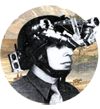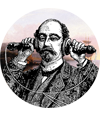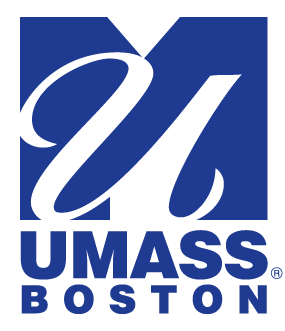Turning Blind Nonreaders into Readers
Categories:
by Denise Meise

The West Tennessee Special Technology Access Resource Center, better known as the STAR Center, is a non-profit organization in Jackson, Tennessee that specializes in assistive technology. In 1988, Chuck and Margaret Doumitt discovered that their two youngest children were losing their eyesight, and doctors eventually determined that they had a rare condition called Batten’s disease. This disease would cause blindness, seizures, loss of motor skills, and ultimately death. Chuck and Margaret began to dream that George and Angela would someday have access to assistive technology. Instead of moving to a larger city that already had an assistive technology center, the Doumitts decided to start one on their own.
What started as a vision for two concerned and loving parents has now become the largest assistive technology center in the country. Every year, the STAR Center serves close to twenty thousand people, including adults and children with disabilities, their families, and those educators and health professionals who serve people with disabilities. With 18 different programs, the STAR Center has services for people with every disability imaginable.
I started as a CTC VISTA at the STAR Center on September 11, 2006 with the title of Volunteer Coordinator. As such, I quickly realized that the first step toward having great volunteers is to have specific and organizationally accepted work plans that describe exactly what a great volunteer means to that specific organization. Great volunteers also need to know that they will have adequate training in the beginning of their service as well as intermediate training if needed.
The newest program for the STAR Center is an adult Literacy Lab made possible by the Jackson Rotary Club. In June, they committed to donating five thousand dollars per year for five years to help get the literacy lab up and running. The Rotary Club also committed to providing volunteers for the lab. Because these volunteers will be an essential part of the lab, they should know about the constituency with which they will be working. To that end, I have been doing a lot of research on adult literacy so the volunteers feel informed, knowledgeable, and confident when they start their work.
My main focus with the Rotary Club members will be encouraging them to volunteer and motivating them. They will come to the STAR Center on October 25 for the dedication of the literacy lab. With the information that I gathered on adult literacy, I created a packet that the Rotary Club members will receive at that time. It includes detailed descriptions of volunteer roles in the lab, information on adult literacy, and a list of resources for any who want to learn more. The packet also includes a brochure that was created for adults who cannot read well in order to advertise the literacy lab.
All of the Rotary Club members who wish to volunteer will then choose a time to come in for a group training that will last about two hours. This training will provide them with a general overview of the services of the STAR Center, teach them about individual differences in adults who are learning to read, and offer information on various tutoring techniques.
After the group training, each volunteer will be assigned to one client. Many of the adult learners at the STAR Center are already using computer programs to reach their literacy goals. In addition to computer training, Literacy Lab clients will also have access to a library of books for new adult readers, direct teaching, flashcards, homework lessons, and opportunities to read aloud. Because of the variety of programs and methods of teaching literacy, it is important that each volunteer has in-depth training on which techniques the client is using. The volunteers will have detailed training at the beginning of service and access to more training as needed. Instructors in the lab will be available to monitor the progress of the client and answer questions for the volunteers.
The STAR staff and I have worked diligently to find resources for adult literacy learners and volunteers. Hopefully, the Rotary Club members will be motivated to volunteer!
Anyone who is interested in learning more about adult literacy or adult literacy volunteers should check out the following websites:
- http://nces.ed.gov/naal contains statistics on adult literacy
- http://www.literacyonline.org/ncal.html contains information from The National Center on Adult Literacy
- http://literacyconnections.com/AdultLiteracy.php contains The Key: A Newspaper for NewReaders
- http://www.readinga-z.com contains literacy assessments and various resources
- http://www.lakeline.lib.fl.us/programs_and_services/family_literacy_program/adultlit_vol.aspx contains information on adult literacy volunteer tutors
- http://www.adultliteracyleague.org/volunteer/tips.asp#1 contains a list of books for new readers
- http://www.altn.org/techtraining/student.html contains resources for adult literacy learners and tutors










